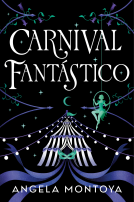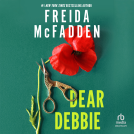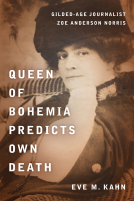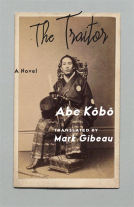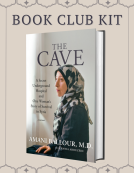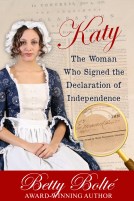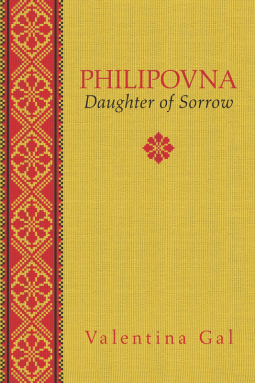
Philipovna
Daughter of Sorrow
by Valentina Gal
This title was previously available on NetGalley and is now archived.
Send NetGalley books directly to your Kindle or Kindle app
1
To read on a Kindle or Kindle app, please add kindle@netgalley.com as an approved email address to receive files in your Amazon account. Click here for step-by-step instructions.
2
Also find your Kindle email address within your Amazon account, and enter it here.
Pub Date May 01 2019 | Archive Date Jul 30 2019
Guernica Editions | MiroLand
Talking about this book? Use #Philipovna #NetGalley. More hashtag tips!
Description
Philipovna: The Daughter of Sorrow is a creative non-fiction based on the author's mother's surviving the holodomor [the Ukrainian starvation] in the early 1930's. It is the story of an orphan who goes to live with her aunt in a rural village in the Ukrainian countryside. The aunt swears on her dead sister's Bible that Vera Philipovna will survive no matter what might befall the family. No one foresees the horrors that they will have to face between the fall of 1930 and the spring of 1933. In the end, out of a healthy extended family, only Philipovna, a cousin and the aunt survive. The acts of real savagery that are perpetrated on the village are unflinchingly narrated by a pre-pubescent girl, who also gives us a good grasp of the beauty and richness of the Ukrainian culture with its superstitions, customs and celebrations. From the author: "The story is one of resilience and survival. It is my attempt to restore the voice of a generation that has been silenced and buried. It is a conflation of my mother's stories, years of detailed research and my own insight of a child having to face adult challenges long before she is ready."
Advance Praise
"[Philipovna] describes how in the early 1930s, tactics of deliberate starvation and denial of basic rights were used to force the people of Ukraine to surrender to the Stalin regime... told through the eyes of a young girl who witnessed the brutal results of what has been called a “crime against humanity.” This book illustrates the fragility of human rights and how such rights can easily be obliterated by corruption and power yet it is a very accessible and exciting read."--Yvonne Peters, human rights lawyer and past Chairperson of the Manitoba Human Rights Commission.
"Gal has written a haunting, gut-wrenching account of her mother’s life in Stalin’s Ukraine. In carefully-measured prose, she recreates the daily lives of those who suffered—and endured."-- James King, Professor at McMaster University.
Available Editions
| EDITION | Other Format |
| ISBN | 9781771833691 |
| PRICE | $25.00 (USD) |
Links
Average rating from 5 members
Featured Reviews
 Librarian 226140
Librarian 226140
One of the greatest reads I've read this year!
Philipovna's parents are dead. She is an orphan. Her godfather will decide where she will live. He decides she will go to her Aunt Xena and Uncle Misha and her cousins. Their village is overrun by
Propagandists who are sent by Stalin to show the villagers the "new" way of life. Comrade Zabluda is the head of the propagandist's. The ultimate goal for them is take away land, crops, food and any grains that the villagers have. Starvation sets in. Then diphtheria. Many die. Philipovna's aunt promised that she would watch over her and make sure she survives. Even if she has to take her far away and give her to an orphanage. A heartwarming, heartbreaking story of strength, determination, honor, and commitment.
Excellent!
 Genoa G, Reviewer
Genoa G, Reviewer
The book is about a Ukrainian orphan girl surviving holodomor. She was adopted by her aunt family, and they lived happily on the family farm. Then Russians come to the village and try to take their land and convert people into joining kolhosp - collective farm, which was a form of slavery. Russians take all of their food, harass, torture and murder people, and leave the families to starve, all in the name of Mother Russia and Father Stalin. I heard multiple accounts of the times, from books and from what neighbors and friends told about the times. The book rings true to all of that. One of my neighbors remembers as the Russians came for food and they took everything including a piece of bread, she, then a little girl, was holding in her hand and eating. Those were not human beings.
The book is especially timely in light of Russia attacking and occupying parts of Ukraine at the moment, all the while pretending to fight "fascists" there or some other nonsense., and sowing seeds of unrest all over the world, including our own country.
The book is very well written and well researched and sounds like an authentic account of the times. I stayed up until 3 am to finish it, I couldn't stop reading.
One of the best books I will read in 2019.
When Philipovnas father dies, her Aunt Xena takes her in, promising her that she will survive.
When "Father-Stalin" propagandists move into Philipovnas small village, her family watches as their food is taken from them, often times burned or laid to rot. A famine spreads across the village, Father Stalin needs your horses, your grain, your livestock...
Closed off this village suffered without a doctor or medicine, children died from starvation of the croup. Men were forced to join the Kolhosp, forced to harvest the food they were forbidden to eat.
Philipovna watched as her once large family, dwindled down, as her friends and neighbors, died or were murdered by the "comrades".
I want to know more about the woman this little girl grew up to be.
I don't want her story to end.
Readers who liked this book also liked:
Rachel Joyce
Historical Fiction, Literary Fiction, Women's Fiction
We Are Bookish
Biographies & Memoirs, Health, Mind & Body, Nonfiction (Adult)

